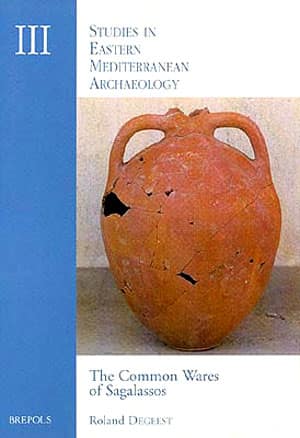Studies in Eastern Mediterranean Archaeology III -SEMA III
350 pp, b/w figures, pb, in English.
By far the most common archaeological finds consist of potsherds. Although the study of ceramics started at an early date, discrepancies and lacunae are rife in this area of archaeological research. For the Roman period the so-called fine wares have always attracted more interest than the more utilitarian ceramics. Although this situation has been rectified to a large extent in the Roman west, the eastern part of the empire remains by and large terra incognita, with most of the effort going into the study of fine wares. A second discrepancy exists between the coastal areas, which are rather well known, and the inland sites, specifically in Asia Minor.
This book is one of the first attempts to rectify at least in part the existing situation by studying the common wares of the Roman town of Sagalassos in Pisidia from the first to the middle of the seventh century. The research on a previously unknown pottery manufacturing centre is placed within the wider framework of pottery research in the eastern Mediterranean, but contrary to most of the extant studies, the chosen approach is not limited to typology and chronology.
Also included are a full mineralogical/chemical analysis of the different fabrics, both local and imported, while the full typological spectrum of wares and types is described, quantified and illustrated. As such it represents a major addition to the ceramics research concerning the eastern Roman empire.




